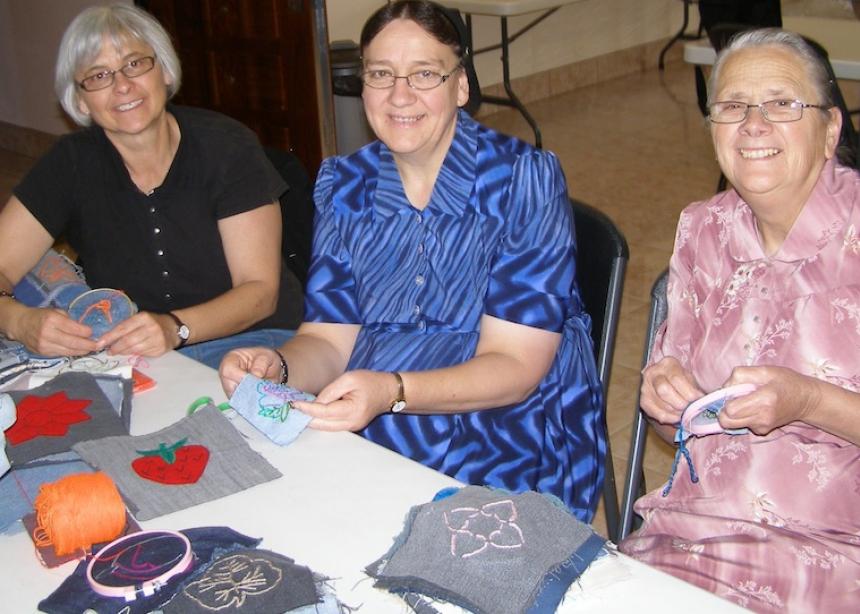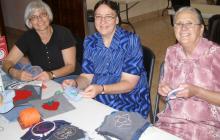Tears, laughter and hugs mark Grace’s (not her real name) last group session at a residential treatment centre here for drug and alcohol addictions.
Grace said she came to the rehabilitation centre--Centro de Rehabilitacion, Luz en mi Camino (Light on my way)--the day her first grandchild was born because she wanted to reduce usage of prescription drugs and learn new ways to deal with problems.
“I could hardly sleep last night—I am so excited that I am graduating today and that I’m going home where I want to be a good example to my family,” she said.
Her strong determination to continue the healing journey she started in the centre was affirmed by staff and other clients who encouraged her with Bible verses and personal reflections.
But parting comments at her last group session also reflected the apprehension that people face when they leave the supportive environment of the centre to return to homes and communities where their addictive behaviours had developed.
“If you offered me today that I could go home, I wouldn’t go home,” said one of the women at the centre. “A lot of roots have been pulled out (of my life) and new seeds have been planted, but I know that I’m not ready to go home. I want to stay here until new roots start to grow.”
Luz en mi Camino is a cooperative venture of the Mennonite colonies in the state of Chihuahua. The centre opened on Manitoba Colony near the city of Cuauhtémoc in 2004 to provide services in the Low German language for men and expanded in 2009 to provide services for women.
More than 100 women and more than 750 men have participated in the programs, said director David Penner, who was among the first graduates in 2004. Up to 15 per cent of clients come from outside Mexico, including Canada, United States and other Latin American countries.
Mennonite Central Committee (MCC) Canada has been supporting the centre since its early beginnings through service workers and other supports.
Penner describes addiction as a life-shattering illness that destroys lives and families. He said people come to the centre because they are eager to stop addictive behaviour, resolve the issues that contribute to this behavior and regain the trust of family, friends and church communities.
To receive a graduation certificate, clients complete a three to six month program that integrates a 12-step healing program and biblical teachings, group activities, intense counselling and plans to deal with relapse. Marriage and family counselling are also provided.
Throughout their stay, people are encouraged to embrace an identity that is based on their relationship with God and not on their past history. Penner said people who have completed the program often look to friends and places of worship to help them continue the changes in thinking and behaviours started in the treatment centre. However, many church congregations do not understand addictions and how to support people in their recovery from addictions.
“The problem is that many of our clients don’t have a support system when they leave the centre—they are alone,” said Penner. “People expect them to prove that they have changed, instead of believing them that they have changed. We need to support people with friendship and say, ‘Welcome back’ when they have completed the program.”
Maintaining freedom from addictions, he said, is a lifelong challenge. To reduce the potential for relapse, the centre now encourages couples to participate in the programs at the same time, even if only one spouse has addictive behaviours.
While Grace was in the centre completing a six-month program, her husband recognized that he too would have to make changes and was part of the program for almost two months.
“I’m always happy when I see young couples come here,” said Grace. “If we had done this sooner, we would have been more loving parents.”
--Oct. 20, 2011






Add new comment
Canadian Mennonite invites comments and encourages constructive discussion about our content. Actual full names (first and last) are required. Comments are moderated and may be edited. They will not appear online until approved and will be posted during business hours. Some comments may be reproduced in print.